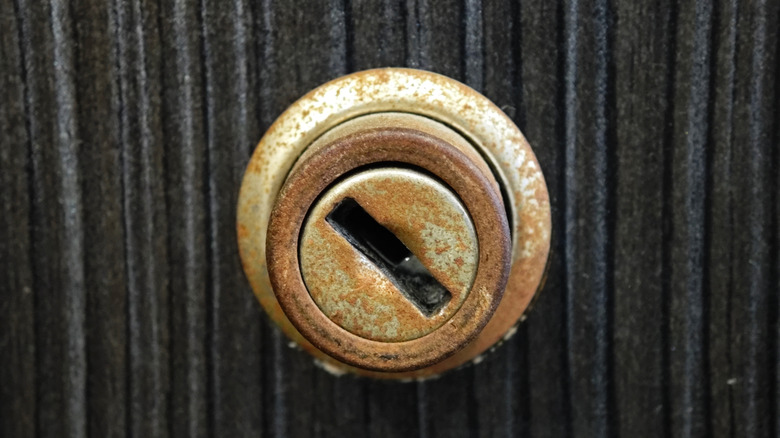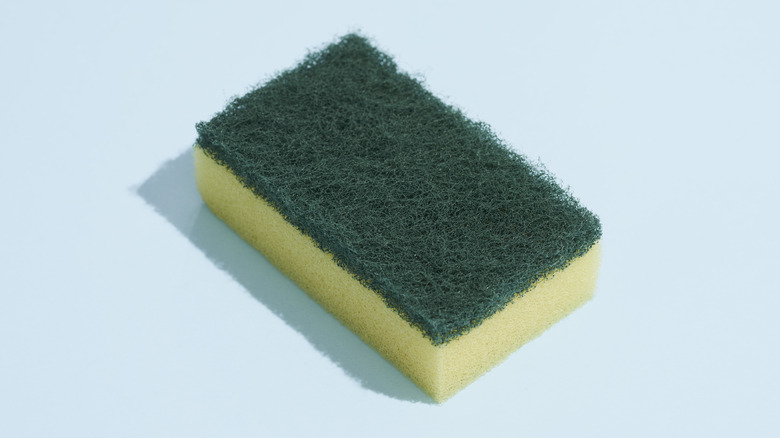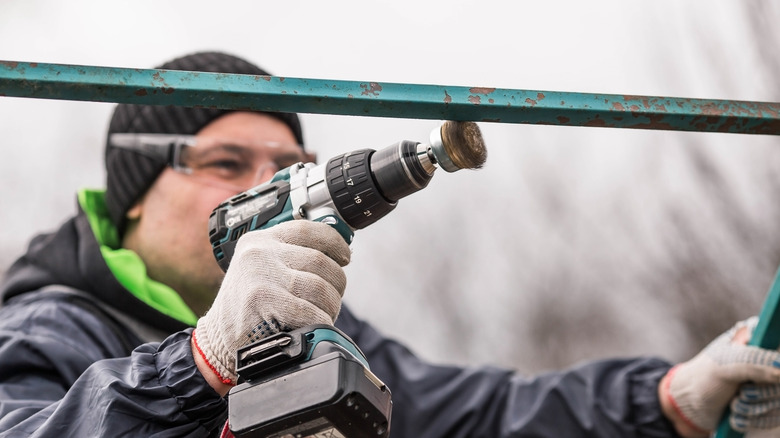The DIY Trick That Can Help You Remove The Most Stubborn Rust Particles
We may receive a commission on purchases made from links.
Rust is the ultimate nemesis of a homeowner who wants everything to be clean. You find it on your tools, kitchen utensils, outdoor furniture, keyholes, or even that old bike you swore you would refurbish. It clings stubbornly to crevices and tight corners, making it a challenge to scrub off. When you're tackling the base of a wrought-iron chair or the intricate grooves of an antique metal frame, it seems that those elusive rust spots in the nooks and crannies are determined to survive the apocalypse! Regular scrubbers can't reach the tricky angles, while old toothbrushes take forever to scrub off the rust.
Before you call it quits, try a DIY trick that just uses a scouring pad and a bit of wire. This genius yet surprisingly simple process helps you make a rust-removal tool that works well in hard-to-reach places. It's cheap, effective, and satisfying to use, as it can do what your other go-to tools can't.
How to create and use this genius tool
To begin, grab a scouring pad or the abrasive side of a kitchen sponge and some sturdy wire, such as a metal coat hanger or garden wire. You can even repurpose a chopstick or a skewer for a similar effect if you don't have wire on hand.
Cut the scouring pad into a strip about two inches wide, then wrap it tightly around one end of the wire or the stick. You can secure the pad using duct tape or a snug rubber band. You can even take it a step further by wrapping the scrubber around a wire and attaching the wire to a drill, but you'd need to find a way to clamp the other end of the wire and securely attach the pad to it.
This DIY trick works well because the abrasive material of the scouring pad is perfect for dislodging rust without damaging the metal beneath it. Combine this with the flexibility of the wire, and you'll have a tool that's nimble enough to snake into hard-to-reach areas. One good thing here is that you can also use this tool to clean grime from faucets, scrub tight spots in grills, and even polish awkwardly shaped cookware.
What are some alternatives for removing rust?
This DIY tool is effective at handling small to moderate rust spots, but you might need a little extra power for larger or deeply ingrained rust patches. You can do this by pairing your tool with rust-dissolving solutions, such as white vinegar or a baking soda paste, for maximum effect. These are just two of the many common kitchen ingredients that tackle rust stains naturally and without harsh chemicals. Simply apply the solution and let it sit before using your DIY scrubber to finish the job.
You might also want to consider alternatives, such as steel wool or a drill attachment with a wire brush, if you're dealing with heavy-duty rust. A pack of Homax steel wool costs $4.98 on Amazon, while a set of Rocaris drill attachments goes for $7.99. For those on a budget, aluminum foil dipped in vinegar can also work wonders as an abrasive. Your DIY scouring pad tool is still the best solution, ensuring that the most stubborn rust doesn't stand a chance anymore. Now, you just have to arm yourself with genius tricks to prevent metal from rusting and save yourself some future headaches!


